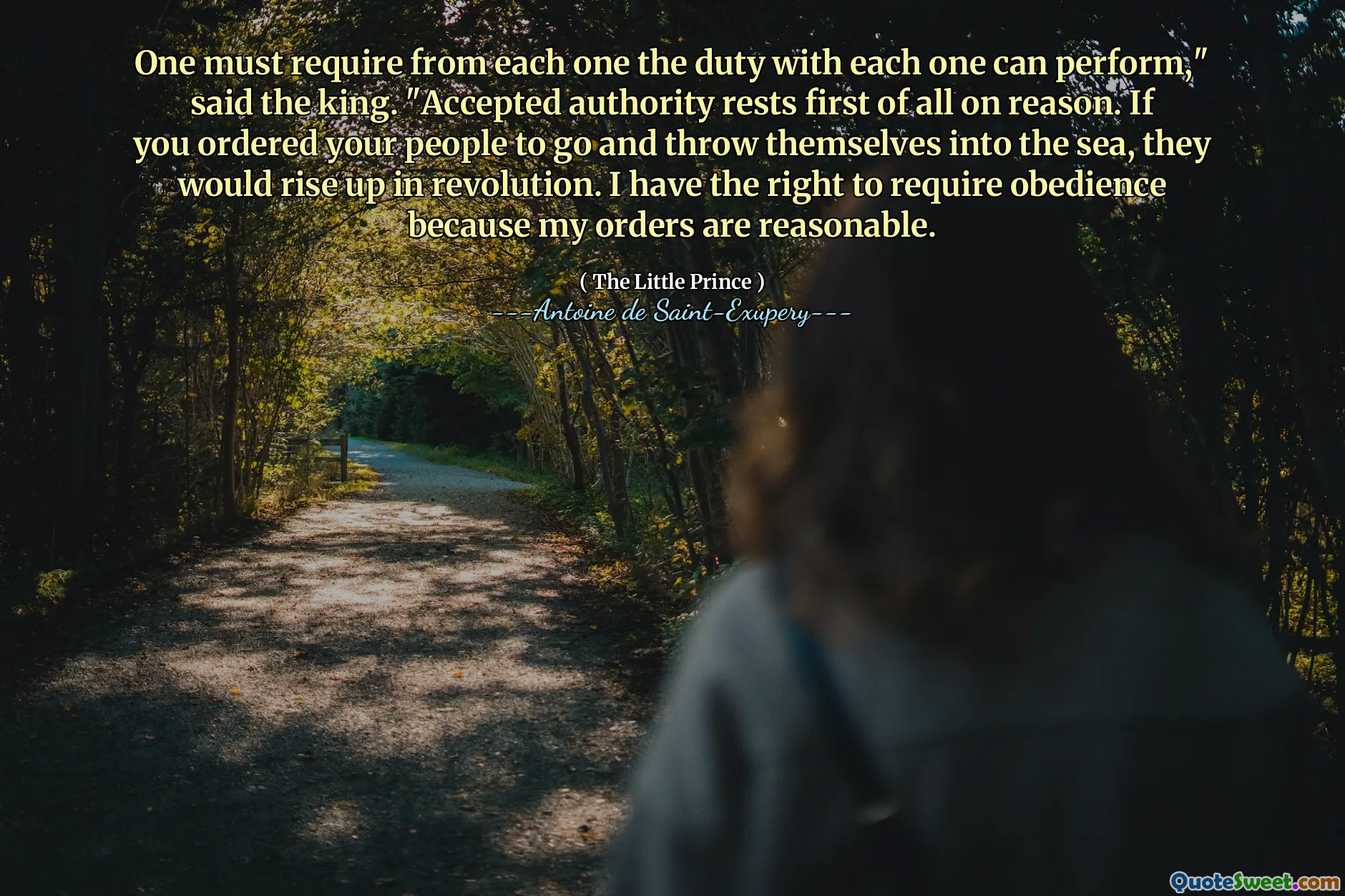
One must require from each one the duty with each one can perform," said the king. "Accepted authority rests first of all on reason. If you ordered your people to go and throw themselves into the sea, they would rise up in revolution. I have the right to require obedience because my orders are reasonable.
The king in "The Little Prince" emphasizes the importance of reasonable authority and mutual obligation. He believes that leaders cannot demand more than what their subjects are capable of achieving. This reflects a fundamental principle of governance where respect and obedience should come from rationality and the capability of the followers.
Moreover, the king illustrates that true authority stems from logical commands. An unreasonable request, like asking people to harm themselves, would incite rebellion rather than loyalty. His perspective suggests that a leader's legitimacy is rooted in their ability to issue commands that are just and sensible, ensuring a harmonious relationship with their subjects.











